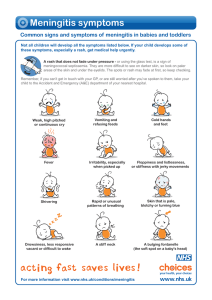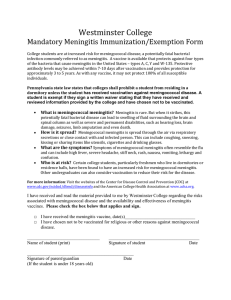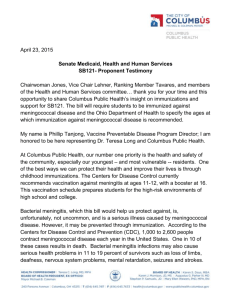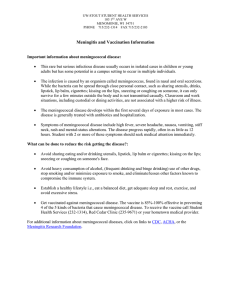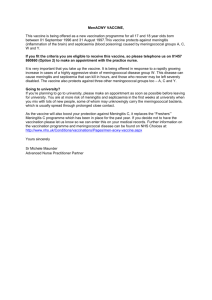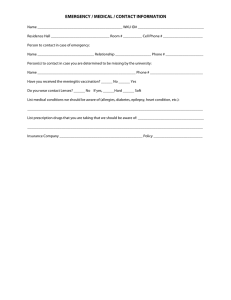Get the Facts What is meningococcal meningitis? What can happen if you get
advertisement
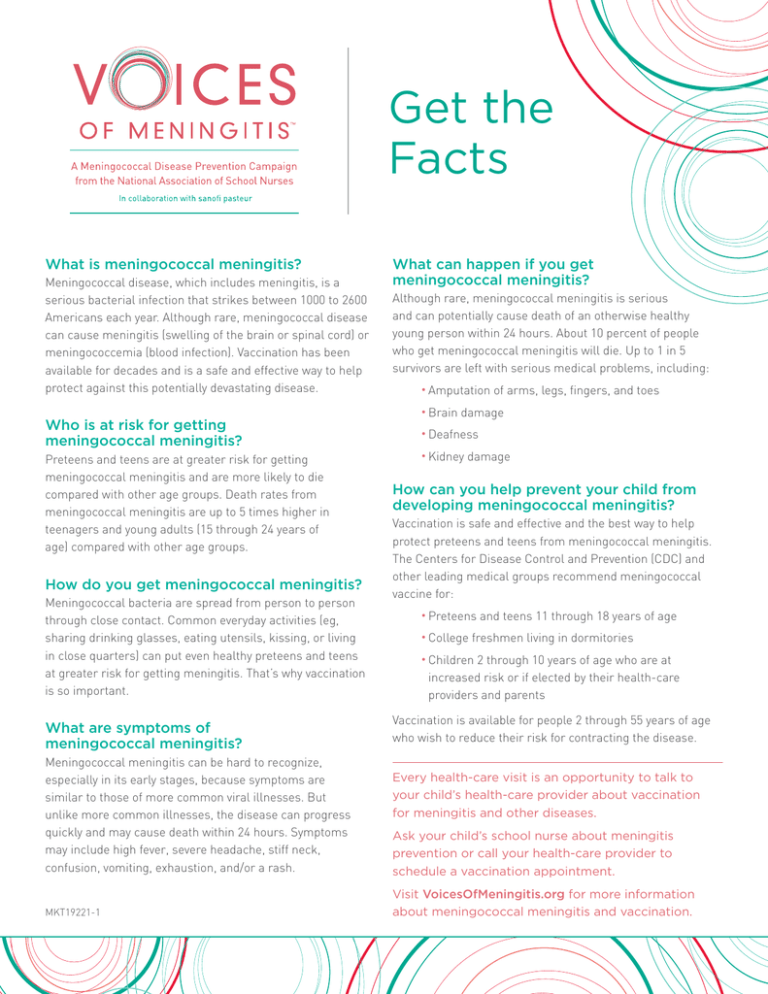
Get the Facts What is meningococcal meningitis? Meningococcal disease, which includes meningitis, is a serious bacterial infection that strikes between 1000 to 2600 Americans each year. Although rare, meningococcal disease can cause meningitis (swelling of the brain or spinal cord) or meningococcemia (blood infection). Vaccination has been available for decades and is a safe and effective way to help protect against this potentially devastating disease. Who is at risk for getting meningococcal meningitis? Preteens and teens are at greater risk for getting meningococcal meningitis and are more likely to die compared with other age groups. Death rates from meningococcal meningitis are up to 5 times higher in teenagers and young adults (15 through 24 years of age) compared with other age groups. How do you get meningococcal meningitis? Meningococcal bacteria are spread from person to person through close contact. Common everyday activities (eg, sharing drinking glasses, eating utensils, kissing, or living in close quarters) can put even healthy preteens and teens at greater risk for getting meningitis. That’s why vaccination is so important. What are symptoms of meningococcal meningitis? Meningococcal meningitis can be hard to recognize, especially in its early stages, because symptoms are similar to those of more common viral illnesses. But unlike more common illnesses, the disease can progress quickly and may cause death within 24 hours. Symptoms may include high fever, severe headache, stiff neck, confusion, vomiting, exhaustion, and/or a rash. MKT19221-1 What can happen if you get meningococcal meningitis? Although rare, meningococcal meningitis is serious and can potentially cause death of an otherwise healthy young person within 24 hours. About 10 percent of people who get meningococcal meningitis will die. Up to 1 in 5 survivors are left with serious medical problems, including: • Amputation • Brain of arms, legs, fingers, and toes damage • Deafness • Kidney damage How can you help prevent your child from developing meningococcal meningitis? Vaccination is safe and effective and the best way to help protect preteens and teens from meningococcal meningitis. The Centers for Disease Control and Prevention (CDC) and other leading medical groups recommend meningococcal vaccine for: • Preteens • College and teens 11 through 18 years of age freshmen living in dormitories • Children 2 through 10 years of age who are at increased risk or if elected by their health-care providers and parents Vaccination is available for people 2 through 55 years of age who wish to reduce their risk for contracting the disease. Every health-care visit is an opportunity to talk to your child’s health-care provider about vaccination for meningitis and other diseases. Ask your child’s school nurse about meningitis prevention or call your health-care provider to schedule a vaccination appointment. Visit VoicesOfMeningitis.org for more information about meningococcal meningitis and vaccination.
